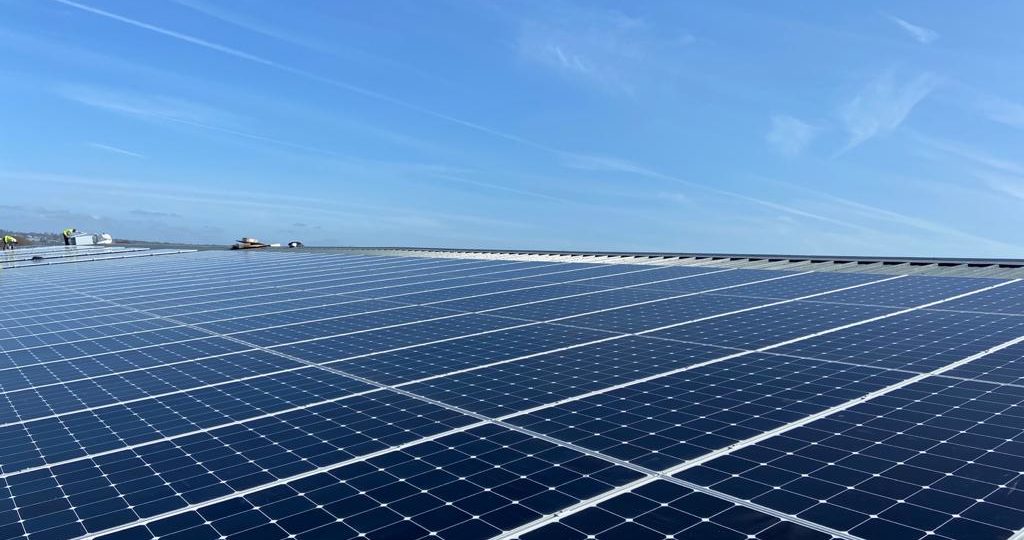https://www.tlgec.co.uk/wp-content/themes/thelittlegreenenergycompany/img/logos/the-little-green-energy-company-logo.png 264 242
TLGEC Renewable Energy: Solar PV, Battery Storage & EV Charging in Kent, Sussex, Surrey, London & Surrounding Areas
You are here: Home » Blog » Solar Financing Explained: How to finance your commercial solar PV system
Solar financing is a subject that our team is helping businesses with on a daily basis.Many businesses are coming to the realisation that ‘going green’ using solar panels brings many benefits to their organisation. Not only do you reduce your company’s impact on the environment (which has the added benefit of being a great marketing tool for stakeholders, shareholders and customers), but you also future-proof against rising energy bills. A more overlooked benefit is that you secure the power supply to your operations, which helps to avoid any disruption in the event of a power cut.
While there is no doubt of the benefits of solar panels, the real challenge is being able to afford to implement these sustainable enhancements and how to finance them. A commercial solar PV system is an investment that will pay for itself over time but the initial outlay can be a daunting prospect.
Fortunately there are multiple ways you can finance your solar panels other than paying for them in full before installation.

Financing your commercial solar PV system through PPA
Power Purchase Agreements, or PPA is a way of financing your commercial solar panels where you don’t have to pay upfront. The price of your solar energy system is locked in, typically for 25 years, and you garner immediate savings from day one.
Your solar PV system will also be maintained by the PPA company, so you don’t have to worry about maintenance and servicing.
PPA means your solar PV system is fully paid for and maintained by the energy company financing your solar panel system. The energy generated will cost typically 40-50% less than they would pay from the grid for the same, this is the benefit to the business. At the end of the PPA term (typically 10-25 years) the system is gifted to the company to continue to use, although they must now maintain it themselves.
Financing your commercial solar PV system through a lease scheme
By financing your commercial solar PV you also garner immediate savings from day one, and have no upfront costs. Your cash is protected at the bank. Furthermore, financed solar panels are tax deductible, and having them installed and operational will not affect existing credit lines.
Lease or Hire Purchase is a loan secured on the equipment being purchased. The equipment remains the property of the lease company until the end of the arrangement at which point it is signed over to the client for a peppercorn payment. Leasing is tax efficient and will still enable the client to remain cash flow positive on the system generation after paying the finance premium. The client is responsible for keeping the system maintained with these arrangements and TLGEC can assist with this.

We work with a few trusted companies to provide solar financing to our clients, Zestec (owned by funds, managed by Octopus Energy Generation), Smart Ease UK and The Lease Group.
We can obtain approval with Smart Ease for systems up to £150K in a matter of minutes with some basic company information. Project values into the millions can be applied for however.
Buying your panels outright
While this option is the most expensive upfront, you will generally get the quickest return on investment if funds are available to purchase your solar PV system outright. This finance option is the one to pick if your business is cash rich with no investments in new equipment required in the immediate future. This option provides you with complete control of the system and savings right from the start and with no interest to pay, the amortisation period is the shortest of all the finance options. You can also use when installing commercial battery storage at your premises.
What is the difference between PPA and leasing?
A solar lease is where you pay a fixed monthly lease payment, which is effectively a loan secured on the equipment with a peppercorn payment at the end to transfer ownership to the client.
When you choose a PPA agreement, the energy company financing your system will install and maintain the solar panels as part of the agreement, and you only pay them for the energy you use at a significantly lower rate than you would paying for electricity from the grid. The PPA typically targets a 40-50% reduction in energy cost compared to grid energy. At the end of the PPA, the system becomes the property of the client.

There are only upsides to investing in solar PV
While a commercial solar PV system is an investment, it is a worthwhile one. There are only upsides to investing in solar energy, and then benefits will keep increasing over time. Here are a couple of reasons you should consider investing in solar energy for your commercial business:
- You will see an immediate reduction of your carbon footprint
- You will garner a return on your investment
- There is a fixed cost of energy from the system generation, which protects your company from market fluctuations. You won’t be impacted by rising energy bills!
- You will get green credentials, which makes your company more attractive to work with to other companies wishing to improve their carbon reduction targets, such as net zero
- Your ESG score will increase
Get in touch with us to discuss financing your solar energy system
If you have any questions, or would like to speak to one of our experts about which solar financing option is right for you, do not hesitate to get in touch with us. We would be more than happy to talk to you.